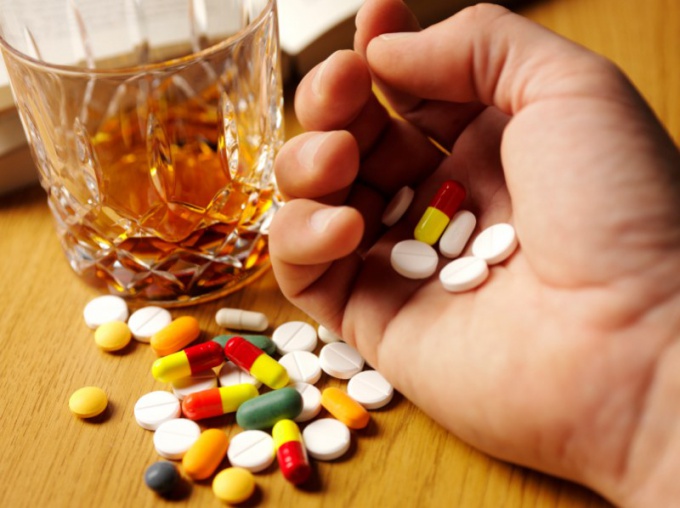The effect of antabuse
Antabus (disulfiram) – a drug for the treatment of alcoholism. The patient taking the drug, give to drink small amounts of alcohol. The resulting weak disulfiram-ethanol reaction increases the blood levels of acetaldehyde. This connection provokes toxic poisoning, manifested by nausea, vomiting, redness of the skin, decreased blood pressure, tachycardia, headache. So, the body produces a negative conditional reflex to alcohol intake.
There are groups of antibiotics that can interfere in the metabolism of alcohol and cause disulfiramopodobna reaction. These include the antibiotics of the group of nitroimidazoles (tinidazole, metronidazole), cephalosporins of the third generation (cefamandol, cefotetan, cefoperazone, moxalactam) and preparations of other groups: levomitsetin, bactrim, Biseptol, co-trimoxazole, ketoconazole, nizoral, trimethoprim-sulfamethoxazole.
In the treatment of any other antibiotics the effect of antabuse were noted. The degree disulfiramum the reaction, furthermore, highly dependent on the dose of alcohol taken. At very high amounts of alcohol status antabuse can result in death, and at moderate it flows easier.
Blow to the liver
Alcohol and most drugs, in themselves, adversely affect the liver. But a significant increase in hepatotoxicity with concurrent use of antibiotics and alcohol is not observed.
The effect of alcohol on the therapeutic effect of antibiotics
Present in blood ethanol can have a significant impact on the effect of antibiotics and do not play a significant role. However, the vast majority of antibacterial drugs do not reduce their pharmacological effectiveness. With the exception of antibiotics tetracycline group.
It is important to keep in mind that many antibacterial agents containing the abovementioned substances, can have completely different trade names. Before you make a decision about accepting even small doses of alcohol, in any case, it is useful to read the summary to the drug. The interaction of alcohol and antibiotics, it will probably be reflected.
